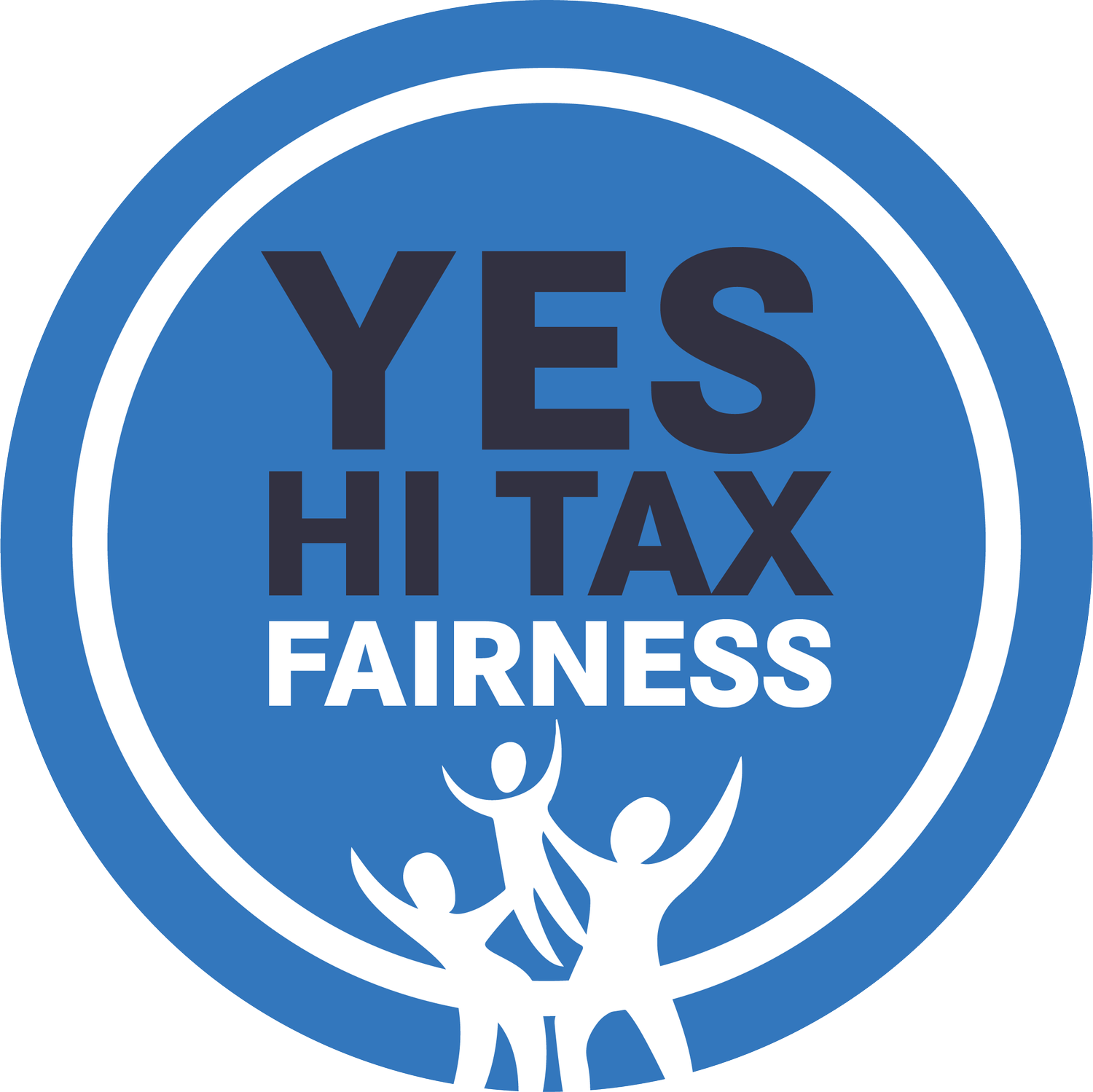Conveyance Tax Reform
More and more Hawaiʻi real estate is being bought up by investors; this tax reform can help restore balance to the housing market.
The conveyance tax is a one-time state tax on the sale of real estate, usually borne by the property seller. It should not be confused with property taxes, paid to the county each year.
The revenue from this real estate sales tax partly goes to fund the development of affordable housing, as well as to protect conservation land and natural resources—two places in our social structure where the impact of an out-of-control real estate market has serious, adverse impacts.
Real estate is one of the few sectors of Hawaiʻi's economy that's been booming during the pandemic, with home prices soaring to new record highs in 2020. However, sellers of high end properties are not paying their fair tax share.
Commodifying Hawaiʻi’s housing market for profit, instead of using it to meet the needs of local residents, is a driving factor behind the high cost of housing.
Our current real estate conveyance tax rates are only 0.50–1.25 percent on multi-million dollar properties. We should not allow our real estate to be sold at such high prices with such low tax returns.
High cost cities such as Seattle and San Francisco have been updating their transfer (conveyance) taxes to rates between 2–7 percent for higher value homes, and Hawaiʻi should too.
If the conveyance tax were raised to 2–6 percent on properties worth $2 million and higher, the state would generate an additional $300–400 million in revenue every year.
While the cost of housing and the value of real estate has continued to skyrocket in Hawaiʻi, the state’s conveyance tax rate has not been updated since Act 156 of Session Laws 2005.
The changes proposed in SB678 would increase revenue for affordable housing, homelessness, land conservation, and the general fund:
Affordable Housing: Between $38–150 million more in annual funding
Land Conservation: Between $5–30 million more in annual funding
Homeless Services: Between $0–30 million more in annual funding (SB678 creates a new 10 percent allocation)
General Fund: Between $60–90 million more in annual funding
The housing and homelessness crises are dire and bold sustainable action is needed now.
According to the 2019 Hawaiʻi Housing Planning Study Study, the State of Hawaiʻi needs approximately 11,857 additional housing units each year to meet the needs of its residents by the year 2025.
30 percent of that need is concentrated at or below people earning 30 percent of Area Median Income (AMI), or $25,000 per year for a single person.
The 2022 Point In Time Count (PIT) estimates that there are currently around 5,973 individuals living unsheltered in the State of Hawaiʻi. This figure does not account for the many more “hidden homeless”—people relying on public assistance, relatives, or friends for shelter because they cannot afford to live on their own.
Non-resident investment in high-end second homes in Hawaiʻi’s real estate market is increasing, every year while people who live and work here are shut out of housing or move away.
The revenue collected from the conveyance tax earmarked for affordable housing and land conservation is insufficient.
A portion of the revenues from the state’s conveyance tax are currently deposited into the Legacy Land Use Conservation Fund and Rental Housing Revolving Fund.
The Legacy Land Use Conservation Fund provides grants to community organizations and government agencies that strive to purchase and protect land that shelters exceptional, unique, threatened, and endangered resources.
The Rental Housing Revolving Fund (RHRF) provides gap funding for the Low Income Housing Tax Credit (LIHTC) program, which is currently the way the State of Hawaiʻi facilitates the development of affordable rental housing (at 0–60 percent AMI).
Current state law caps the amount of conveyance tax revenue deposited into these two special funds:
Ten Percent or $5.1 million, whichever is less shall be paid into the land conservation fund; and
Fifty percent or $38 million, whichever is less shall be paid into the rental housing revolving fund.
In 2022, both funds received their dollar amount cap ($5.1 million and $38 million, respectively). If those dollar caps were removed, the conservation funds would have received $18.8 million (10 percent) for land conservation and $94 million for Rental Housing revolving fund out of the total $188 million collected.
SB678 is good tax policy because it does three things:
Progressively increases the rate of the conveyance tax;
Removes the “caps” on land conservation and affordable housing so that those funds also increase as collections increase
Dedicates an additional 10 percent towards homeless services so that this progressive real estate tax can also mitigate homelessness.


